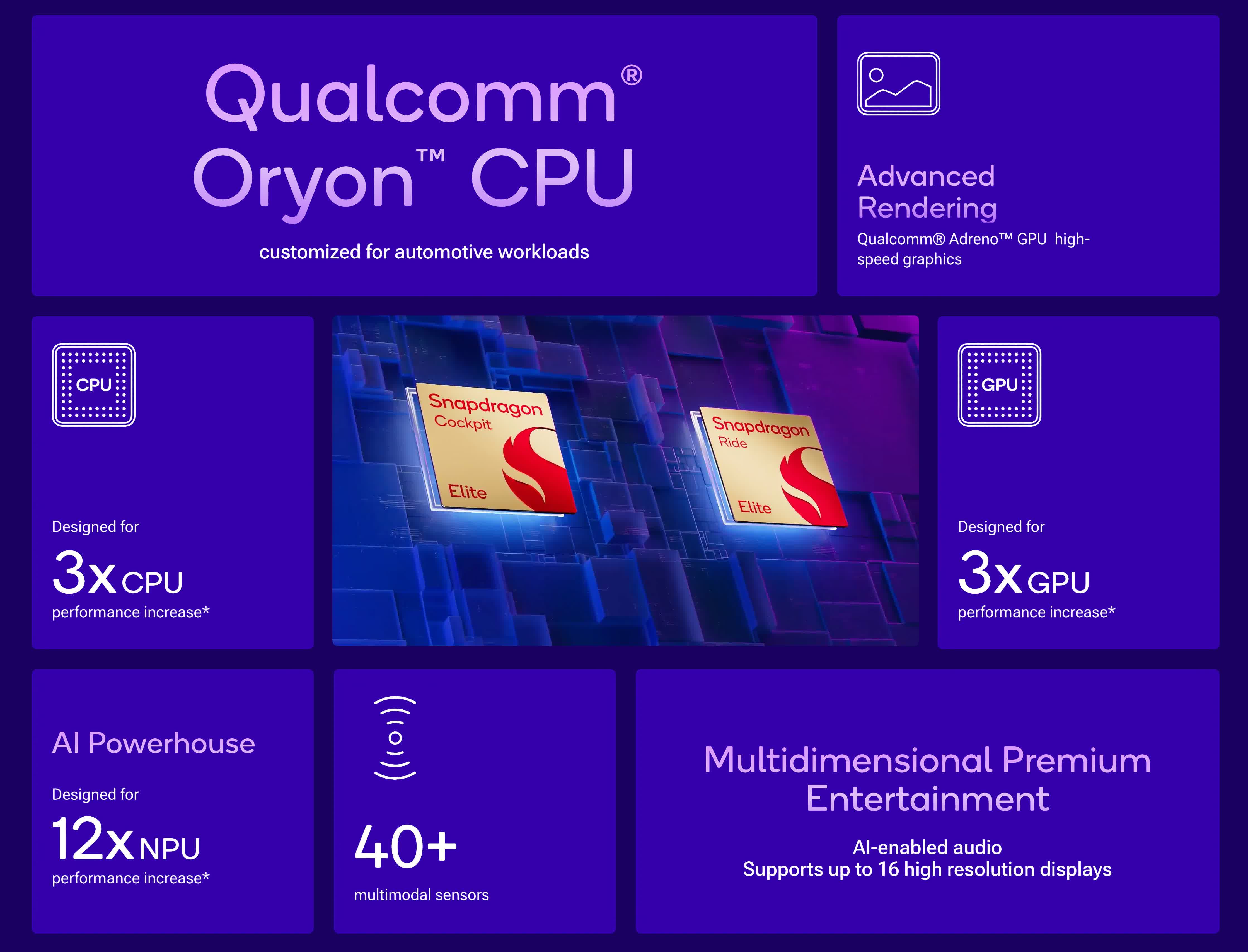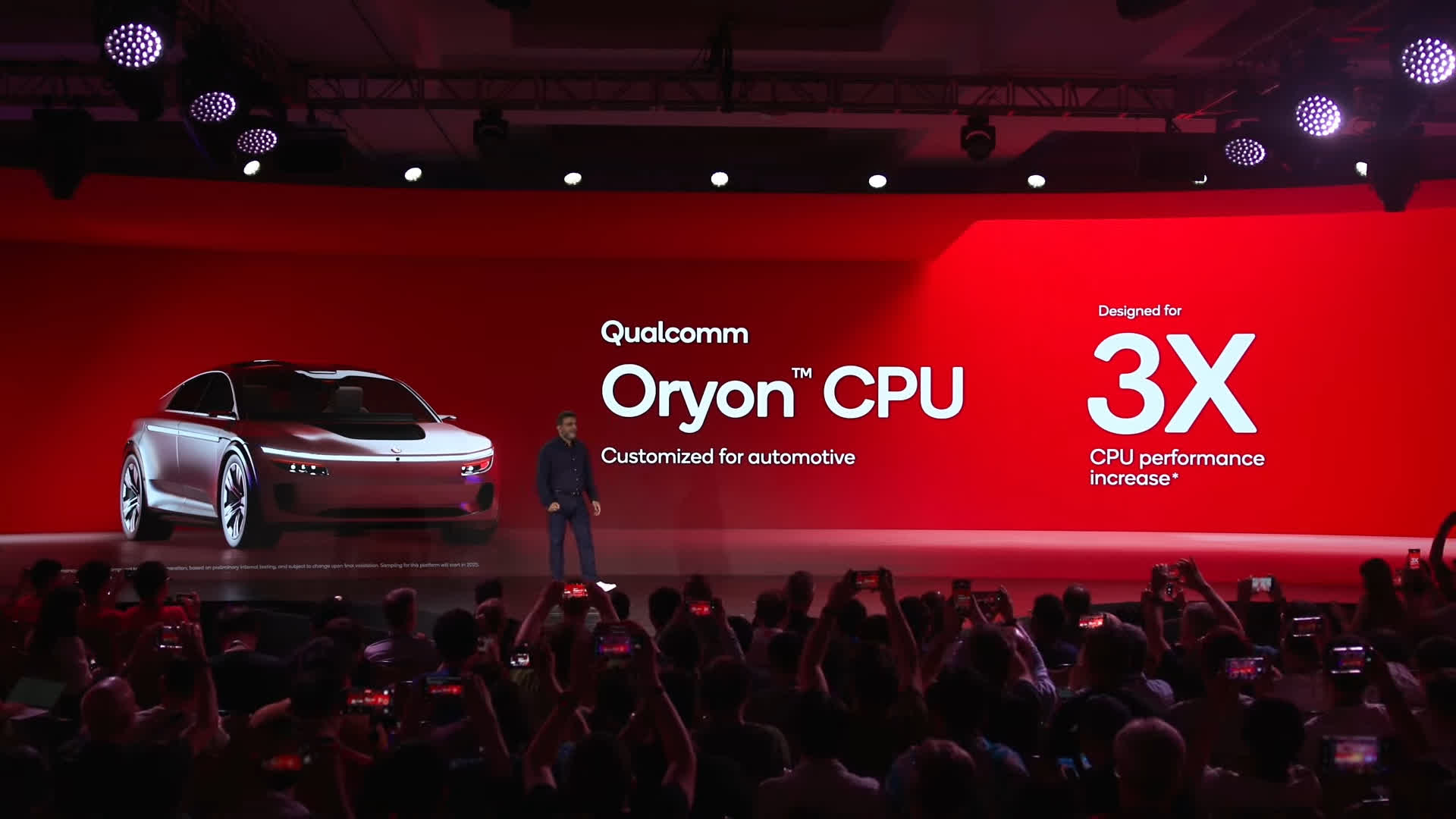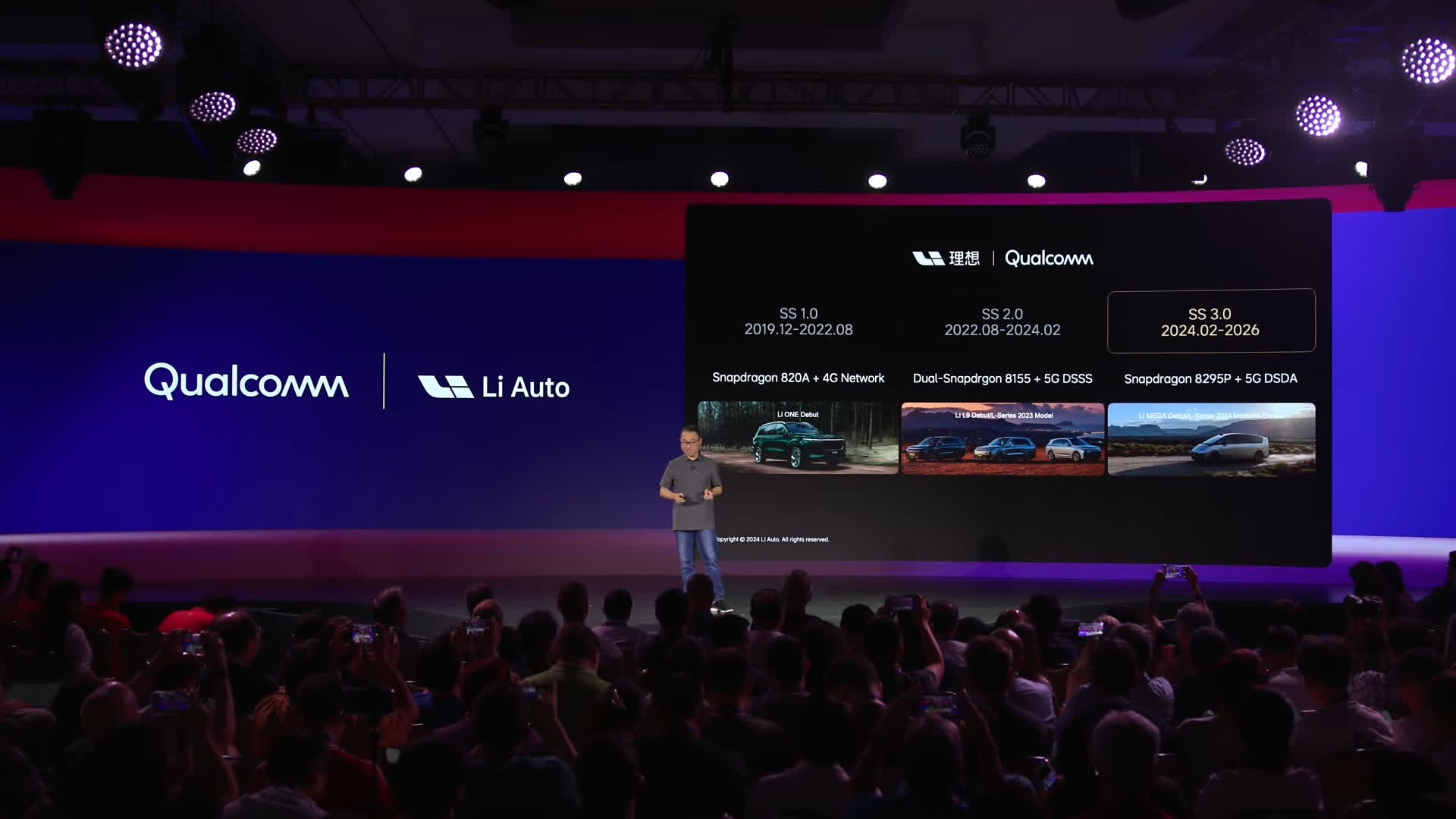Why it matters: While smart glasses and other wearables have been getting a great deal of attention lately, the market poised to be the largest and most impactful new category of personal devices is cars. With the shift to software-defined vehicles (SDVs) and ongoing advances in assisted and autonomous driving, the automotive industry is on the verge of becoming the "next big thing" for the tech sector.
Unsurprisingly, just as AI has been instrumental in advancing other device categories, it's now beginning to make a significant impact in the car market.
The latest example comes from Qualcomm, which recently unveiled next-gen versions of its automotive-focused chips at the Snapdragon Summit in Maui. The Snapdragon Cockpit Elite and Snapdragon Ride Elite are designed for infotainment and assisted/autonomous driving features in premium vehicles and are expected to start sampling in 2025.
Both chips and their respective software platforms are part of Qualcomm's Snapdragon Digital Chassis, which debuted in 2022. Building on the company's previous automotive efforts, these new chips feature the Oryon CPU architecture.
Oryon represents a major leap in performance and power efficiency compared to previous Qualcomm CPUs. It's also a key component of the Snapdragon X Elite chips for PCs, released earlier this year. A second-generation version of Oryon is also part of the new Snapdragon 8 Elite mobile CPU for smartphones.
In terms of raw performance, the improvements over previous generations are substantial. Both the Snapdragon Cockpit Elite and Snapdragon Ride Elite offer a 3x increase in CPU performance, a 3x increase in Adreno GPU performance, and a remarkable 12x boost in the performance of Qualcomm's Hexagon NPU compared to its earlier automotive chips.
The result is a set of car-focused processors that can enable significantly more AI capabilities within vehicles, enhancing both infotainment and assisted driving features.
From a cockpit experience perspective, this performance boost means the potential to build much more advanced voice-based personal assistants, allowing for more intuitive interactions with the vehicle and its features. The increased processing power across the CPU, GPU, and NPU allows vehicles equipped with these chips to handle larger and more capable large language models.
This could enable not just a voice-based interface (which in cars is somewhat underutilized and not that great for the most part), but agents that could assist with tasks like learning your driving and music preferences, or automatically rescheduling a dinner reservation if you're stuck in traffic.
The Cockpit Elite chip can support up to 16 high-resolution displays throughout the car, providing a wide range of entertainment and information options, along with separate audio feeds for different passengers or areas of the vehicle.
From a driving perspective, the new Ride Elite supports more than 40 multimodal sensors, including 20 high-resolution cameras, lidar, and other sensors to enable safer driving, whether the driver is in control or using assisted or semi-autonomous features.
Once again, the enhanced processing power of these new chips allows vehicles to run more sophisticated AI models, which should result in better and more reliable autonomous driving capabilities.
To Qualcomm's credit, they don't try to claim full autonomy – a mistake that many in the automotive industry made well before the capability is available – but instead focus on making the experience of human-monitored driving as good as it can be.
Speaking of safety, as with previous Snapdragon Digital Chassis components, the new Snapdragon Cockpit Elite and Ride Elite support the critical functional safety standards, including ASIL-D and ISO 26262. These standards are essential for ensuring the safe operation of software-defined vehicles in the event of a digital component failure or software crash.
The obvious benefits of incorporating these chips into future cars include extending the AI computing capabilities we've seen in PCs and smartphones into vehicles. However, beyond that, this announcement underscores Qualcomm's continued efforts to diversify its product line and revenue streams.
While the company has been providing communications and telematics solutions to carmakers for over 20 years, its entry into automotive computing is a more recent development. Given that it typically takes about three years from when a chip or critical component is introduced to when it appears in vehicles, Qualcomm expects cars with these new chips to be available by 2026, thanks to the groundwork laid with the Snapdragon Digital Chassis platform.
Qualcomm's previous efforts and these new advancements will begin to impact the company's business results starting next year. With high-level partnerships announced with BMW, GM, and Rivian at this event, the company's future in the auto market looks promising for revenue diversification and growth.
From a product standpoint, this announcement highlights how Qualcomm's investment in Oryon CPU technology is now being leveraged across multiple areas. From PCs to smartphones to cars and possibly other devices in the future, Qualcomm is maximizing the potential of its IP in a highly efficient manner.
By integrating a similar NPU architecture across these categories and developing its cloud-based Qualcomm AI Hub software portal to encourage AI-powered app development, the company is opening up intriguing possibilities. Imagine, for example, computer vision models originally built for smartphones ending up being used for automotive sensing applications. It's an interesting thought.
All told, these announcements paint a more comprehensive picture of what Qualcomm's strategy is and how AI is now weaving a link throughout most of its efforts. While some might argue the company is capitalizing on the generative AI hype and is simply being opportunistic, the comprehensive approach they presented suggests they are building toward a future they see as imminent and very real.
Bob O'Donnell is the president and chief analyst of TECHnalysis Research, LLC, a market research firm that provides strategic consulting and market research services to the technology industry and professional financial community. You can follow Bob on Twitter @bobodtech






